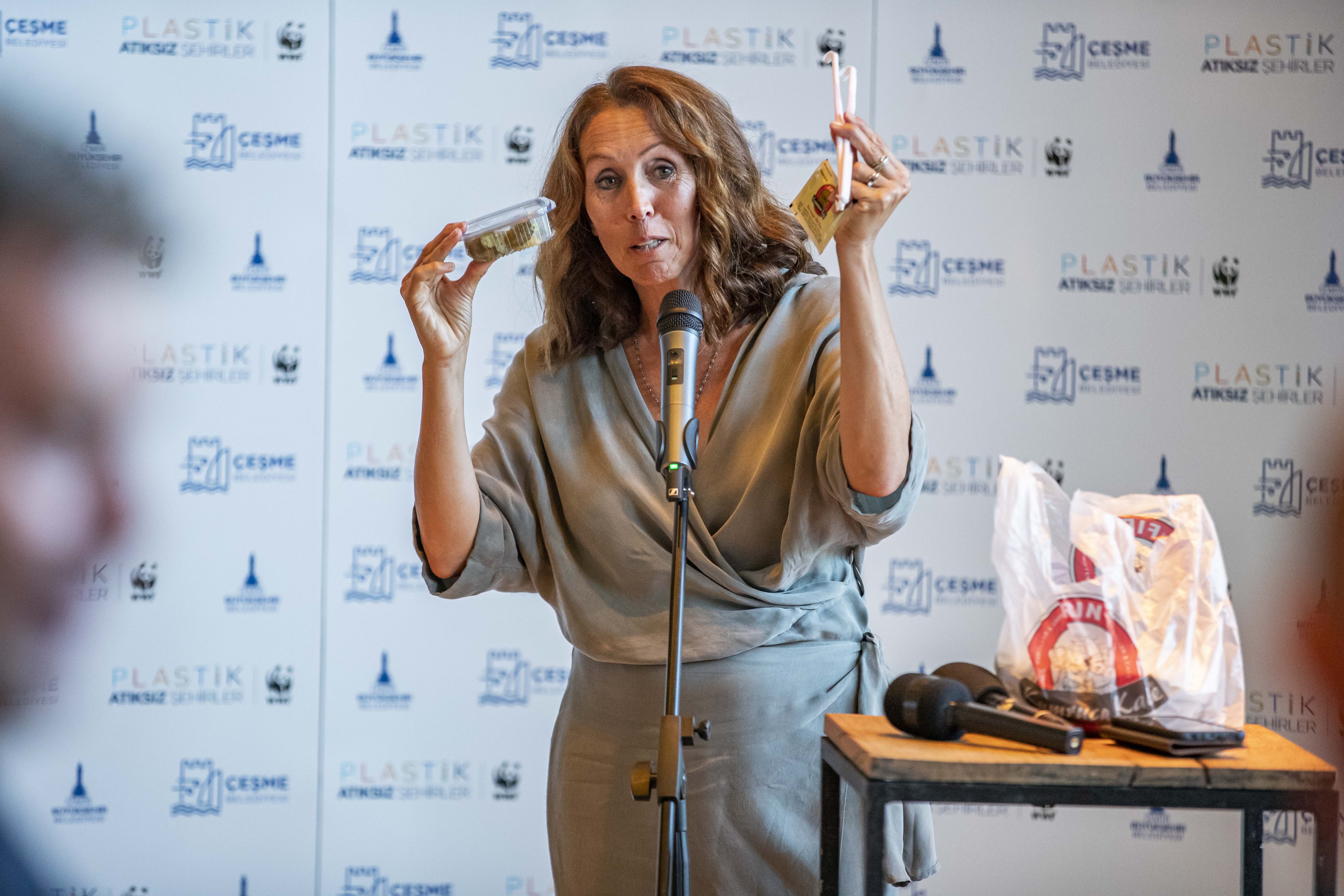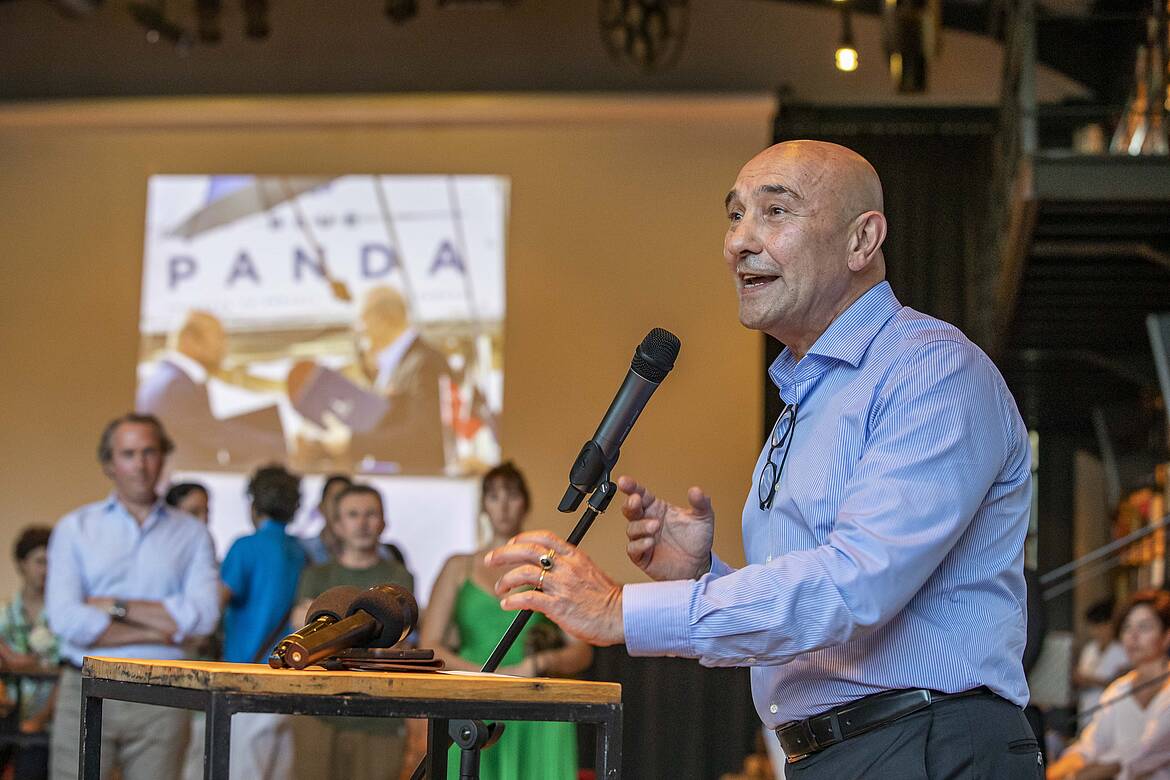Since August this year, Izmir, the third most populous city in Turkey, has a new Plan of Action to tackle plastic pollution. The Plan is an important milestone of the engagement Izmir has taken since it joined WWF’s Plastic Smart Cities Initiative in 2019. The mayor of Izmir, Tunç Soyer, explained some of the main measures the city will take:
“We have the capacity to separate and recycle up to 420 tons of packaging waste per day at our IzDönüşüm Packaging Waste Collection and Sorting Facility. We are currently serving four districts, Buca, Karabağlar, Karşıyaka and Narlıdere. The 800 recycling bins we will place in these four districts allow us to offer two options to Izmir residents, throwing the waste in the garbage as in the past or bringing it together with our recycling bins. If our citizens choose the latter, our nature and public health will be protected, and our country’s economy will grow. With the IzDönüşüm project, we are not only providing street collectors with job opportunities, we are also offering better economic conditions, high quality of life and healthy working conditions. As a result of all these efforts, we aim to increase the rate of packaging waste sent for recycling from 12 percent to 20 percent and then to 40 percent. I would like to emphasize that even achieving a recycling rate of 20 percent means a gain of 160 million liras. Transformation starts in Izmir.“
The action plan was based also on the initial results from the pilot district of Çeşme where a detailed waste analysis was carried out and an action plan is already in place since 2021.
As stated in the plan, over the next few years, the city of Izmir will ban single-use plastics in municipal buildings, supporting green purchasing preferences in public procurements and implementing green protocols for public events, and encourage local businesses like café and restaurants to adopt similar actions. The adoption of alternatives to single-use plastics and research for refillable options will also be supported and incentivised. Separate collection systems will also be strengthened for sectors like agriculture and hospitality. Public information campaigns will also be developed to inform citizens about responsible behaviours to reduce plastic waste at home and increase their participation in citizens’ science initiatives.

The action against plastic waste also reached a symbol of Izmir’s cuisine, the kumru that was served at the signing ceremony. After WWF-Turkey CEO Aslı Pasinli drew the attention to the plastics used to serve it, the Çeşme Chamber of Artisans and Craftsmen pledged to serve kumru without any plastic packaging.
Recognising the role of the tourism sector in the fight against plastic pollution, some hotels that are members of Çeşme Touristic Hoteliers Association (ÇEŞTOB) and Alaçatı Tourism Association (ATD) have also committed to reduce the use of single-use plastics. The hotels will start by banning at least three different single-use plastics such as shampoo, care product packaging and plastic bags.
 Original article from: WWF Mediterranean Marine Initiative
Original article from: WWF Mediterranean Marine Initiative


